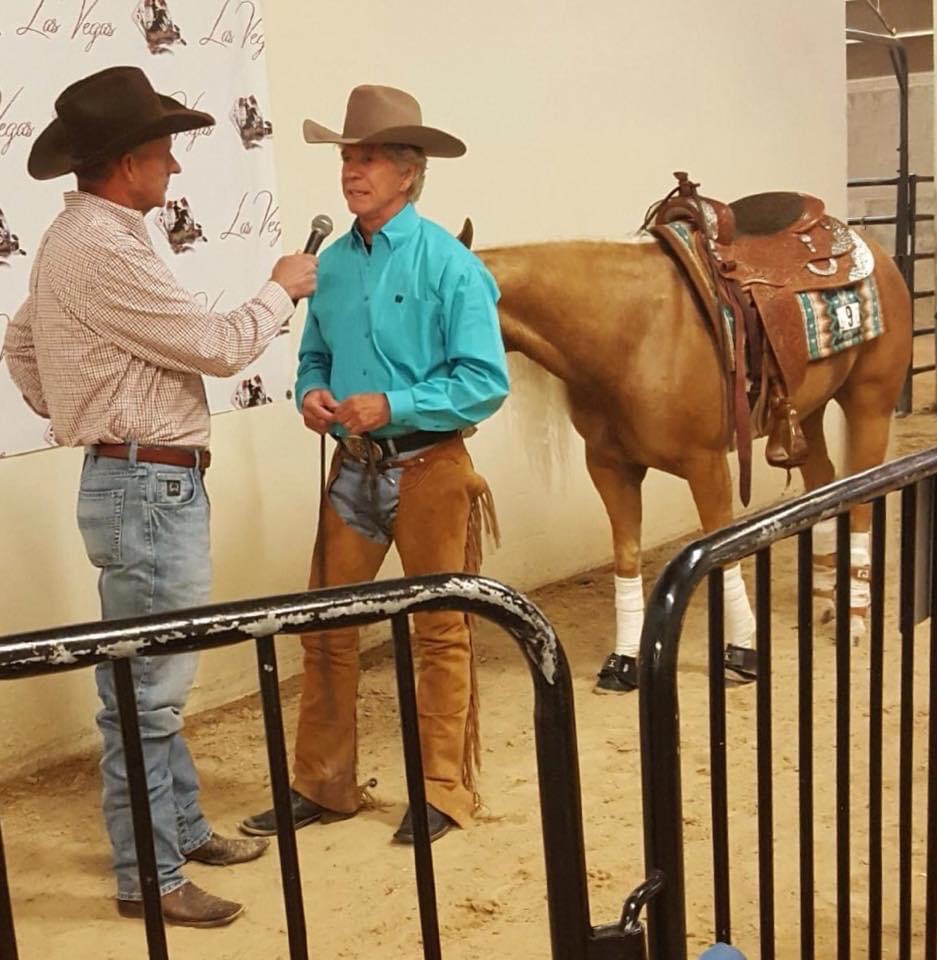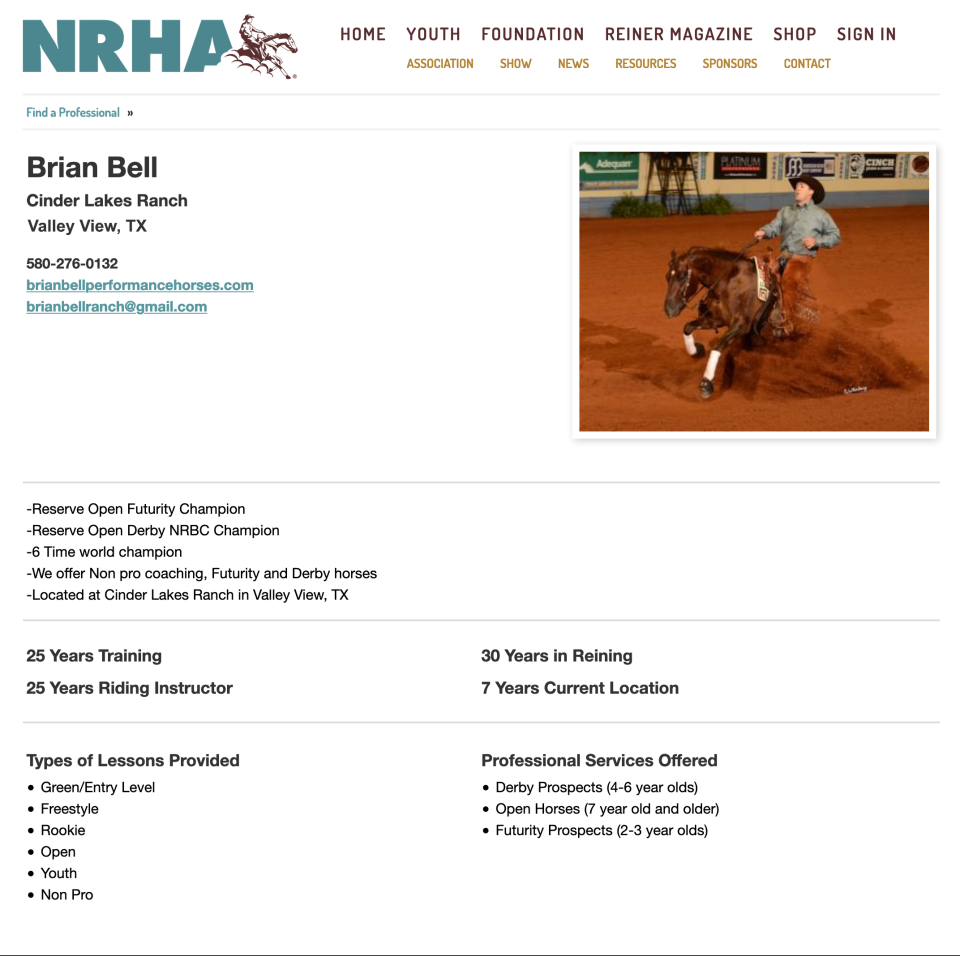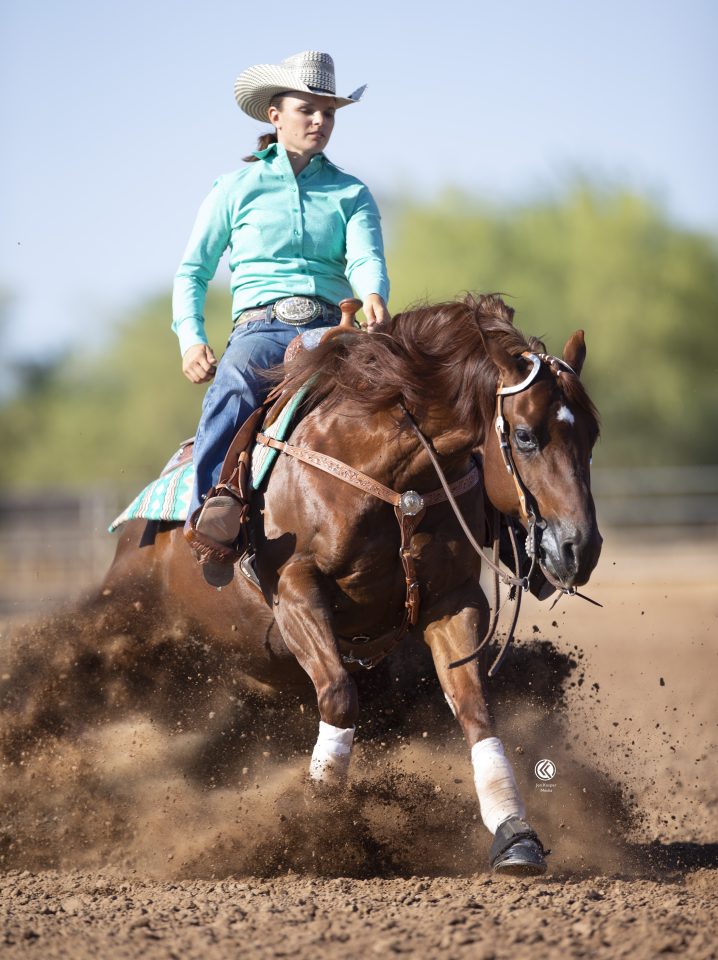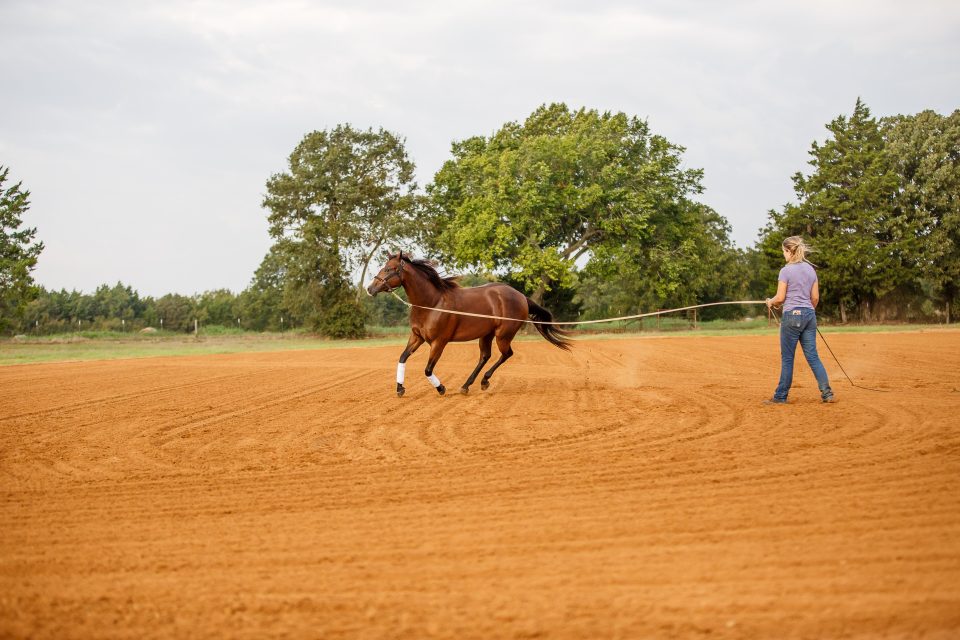Sometimes life requires you to pivot your career. Here are three NRHA Professionals who’ve done it with great success.
By Jennifer Paulson

Every NRHA Professional chose training horses as a career for a reason: a love for the horse. While there are many horse-related careers to pursue that include reining, becoming an NRHA Professional allows you to immerse yourself in the community and culture of the sport. As much as you love the reining horse and the sport of reining, you might reach a point in your career when it’s time to pivot away from full-time training to a different focus. One that still includes reining horses and the community you’ve come to love, but allows you to thrive in different situations, professional and personally.
This crossroads can come at any point in your career. We spoke with three NRHA Professionals who’ve successfully pivoted their reining expertise into other areas of the sport. They continue to contribute to reining in many ways, but they might not spend their days riding colts, hauling to major events, or coaching non pros.
Shane Brown built a lucrative, successful business in Elbert, Colorado, training aged-event horses, coaching youths and nonpros, and facilitating horse sales. He’s since moved to Texas and trains a limited number of horses out of another NRHA Professional’s facility.
Brent Loseke grew up in Nebraska on a cattle ranch, but always had his eyes on horses. He spent a few years focusing on aged-event reining horses, but chose to focus on 2-year-olds, starting some of the most influential reiners of today. From that first pivot, Loseke found himself with another opportunity in his path—managing and promoting stallions Colonels Shining Gun and Patriot.
Steve Ross’ voice is one of the most recognizable in our sport. Ross has trained horses since he was 13 years old, eventually working for NRHA Hall of Famer Doug Milholland for three years. Ross now focuses on pairing riders with their perfect horse match by selling reining and ranch riding horses of all levels as well as commentating major events.
Here they’ll share their insights on pivoting in four parts:
Part 2: How to Use Your Network
Part 3: Transition With the Right Support
How to Use Your Network
Working in the reining business as a trainer means you’re connected to individuals from all corners of the horse industry, from those who provide health care to your mounts to gear and tack makers to show producers and breeding managers—and more. When you think about your network, it’s quite extensive and full of opportunities.
“In our industry, we’re all pretty close,” Brown says. “We’ve built some great friendships and working relationships over the years. A relationship like that is how we ended up in Texas.”
“My network definitely helped [build my new career],” Loseke concurs. “I consider myself a pretty good horseman, and your connections notice that.”
For Ross, knowing a large network of professionals immensely helps his commentating endeavors, not to mention selling horses.
“I’m around all the trainers all the time,” he says. “It’s easy—I pick up the phone and call trainers to talk about their horses and how they’re doing. For the commentating, the people listening really like a little back story that they can’t get everywhere else.”
Some opportunities allow you to jump right in, but most require a slower transition, especially when selling your place or moving training horses into new programs. Brown and his wife spent months getting pieces in place to sell their facility and move their client horses to other barns. Loseke’s move was a little quicker, as he merged his two businesses first, then ceased taking outside horses completely.
“As of this year, I don’t have any outside horses,” Loseke shares. “I’m only riding five of my own 2-year-olds and one 3-year-old. I like that arrangement a lot, because I ride half the day then go about the rest of my business. We foaled out 34 babies in 2022, and many are still here for weaning, halter-breaking, and registering.”
Read the rest of this article at the links above.



